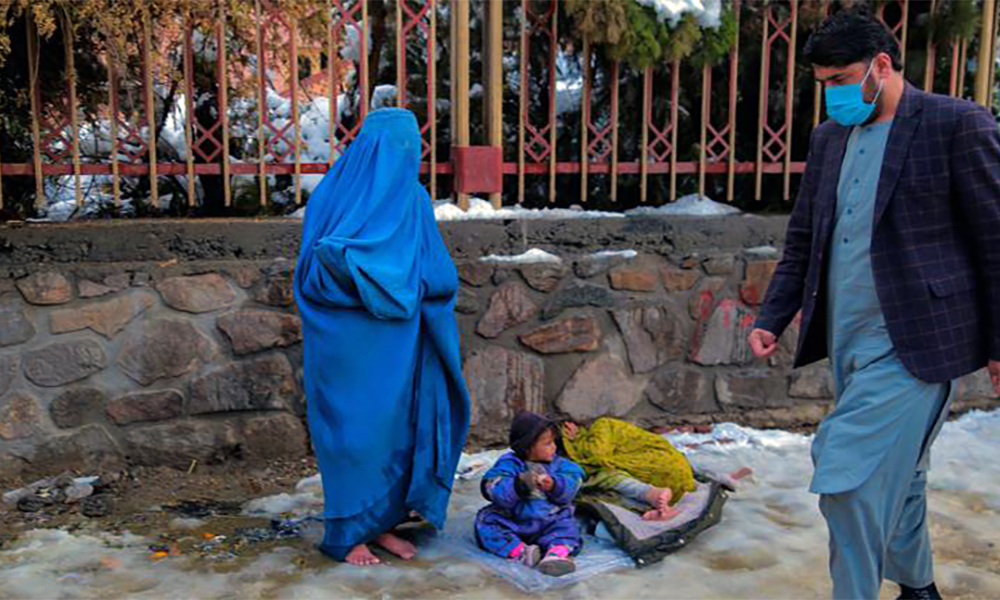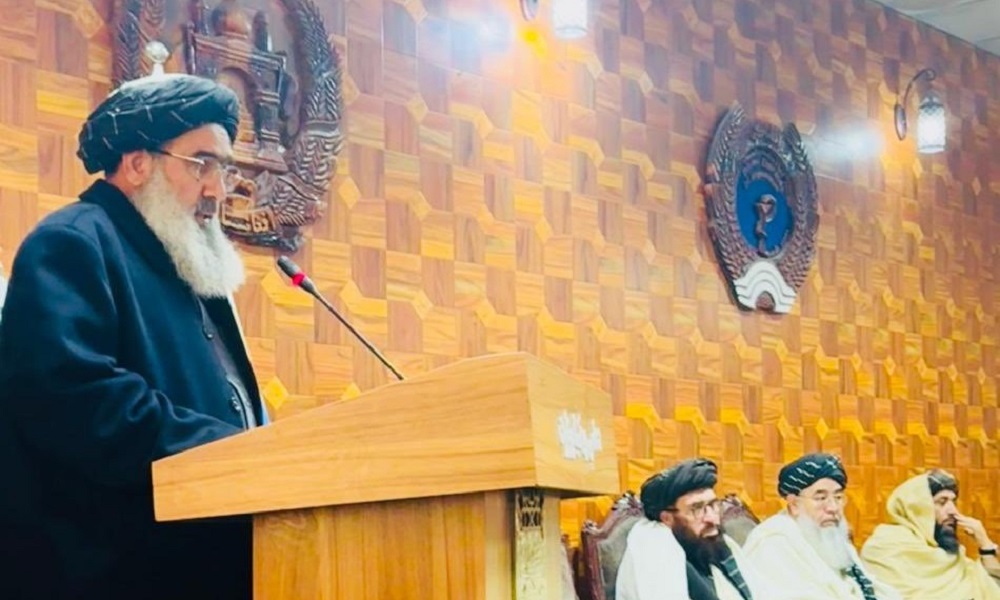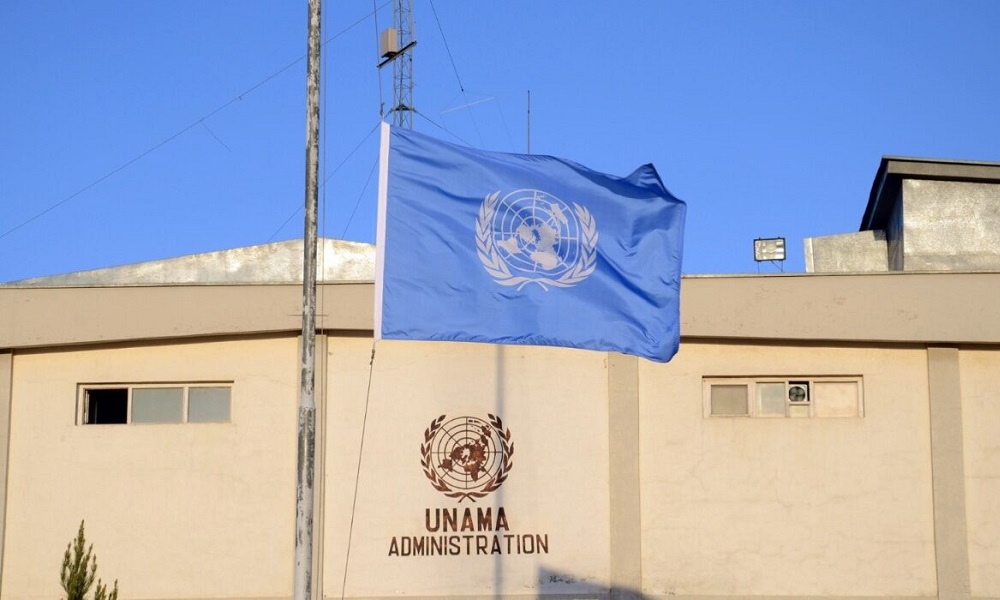Latest News
Afghans facing crisis of ‘unparalleled proportions’: UN official

A senior United Nations official said Wednesday people in Afghanistan are today facing a food insecurity and malnutrition crisis of unparalleled proportions and that the rapid increase in those experiencing acute hunger – from 14 million in July 2021 to 23 million in March 2022 – has forced households to resort to desperate measures such as skipping meals or taking on unprecedented debt to ensure there is some food on the table at the end of the day.
Ramiz Alakbarov, the Deputy Special Representative for the Secretary General, Resident Coordinator and Humanitarian Coordinator, on the Continued Food Insecurity and Malnutrition Crisis Facing People in Afghanistan, said in a statement
that these unacceptable trade-offs have caused untold suffering, reduced the quality, quantity, and diversity of food available, led to high levels of wasting in children, and other harmful impacts on the physical and mental wellbeing of women, men, and children.
In Afghanistan, a staggering 95 percent of the population is not eating enough food, with that percentage rising to almost 100 percent for female-headed households. It is a figure so high that it is almost inconceivable. Yet, devastatingly, it is the harsh reality, he said.
“Hospital wards are filled with children suffering from malnutrition: smaller than they should be, many weighing at one year what an infant of six months would weigh in a developed country, and some so weak they are unable to move,” Alakbarov said.
“As Afghanistan continues to grapple with the effects of a terrible drought, the prospect of another bad harvest this year, a banking and financial crisis so severe that it has left more than 80 percent of the population facing debt, and an increase in food and fuel prices, we cannot ignore the reality facing communities. Enormous challenges lie ahead,” he said.
He said he wants to reiterate that the United Nations, alongside its national and international partners, are doing everything possible to support a comprehensive and coordinated effort to alleviate the impacts of hunger and malnutrition, while giving communities the means to protect and sustain their livelihoods in the future.
He said already in 2022, humanitarian partners have supported 8.2 million people with life-saving and life-sustaining food assistance, including emergency food rations, seasonal support, school meals for children, agricultural supplies for farmers such as seeds, fertilizers and animal feed, and nutritious foods and supplements for nursing mothers and their infants.
Over the next few months, the United Nations and humanitarian partners will continue to focus on scaling-up response activities, reaching underserved and remote areas that have been inaccessible in previous years due to insecurity and active conflict.
Alakbarov said acute malnutrition rates in 28 out of 34 provinces are high with more than 3.5 million children in need of nutrition treatment support.
According to the UN, there are over 2,500 nutrition treatment sites spread across all 34 provinces, both urban and rural, reaching 800,000 acutely malnourished children since mid-August and we plan to reach 3.2 million affected children this year.
“We must remain mindful that while the massive humanitarian response mounted since August 2021 has prevented our worst fears from being realized over the winter, food insecurity and malnutrition remain at historic highs and require an immediate, sustained, and large-scale humanitarian response to prevent the loss of more lives and livelihoods,” Alakbarov said.
According to him, on 31 March, the United Nations and the Governments of the United Kingdom, Germany, and Qatar will co-host an international pledging conference in support of the humanitarian response in Afghanistan.
“I urge Member States to dig deep for the people of Afghanistan at this time, and to continue their generous support to these life-saving efforts,” he said.
Latest News
Ministries of Public Health and Higher Education sign cooperation agreement

The Ministry of Public Health announced on Tuesday it has signed a cooperation agreement with the Ministry of Higher Education aimed at expanding scientific, research, educational, and technical cooperation.
At the signing ceremony held in Kabul, Noor Jalal Jalali, Minister of Public Health, said that the agreement would lead to significant improvements in the capacity-building of students and doctors, ensure that research is conducted based on evidence, and enable the collection of accurate data.
Meanwhile, Neda Mohammad Nadeem, Minister of Higher Education, described the agreement as beneficial to the public and to both institutions, stressing the need to train individuals at universities who can contribute to social development and make the country self-sufficient in the public health sector.
Latest News
UNAMA holds new round of Working Group meetings on counter-narcotics and private sector

The United Nations Assistance Mission in Afghanistan (UNAMA) has convened a new round of Doha Process Working Group meetings focusing on counter-narcotics and private sector development.
The meetings, held in Kabul on February 3 and 9, brought together representatives of UN member states and international organizations, officials of the Islamic Emirate, and subject-matter experts.
According to UNAMA, discussions in the counter-narcotics working group centered on efforts by Islamic Emirate authorities and the international community to support alternative livelihoods for Afghans previously dependent on poppy cultivation and the illicit opium trade. Participants also reviewed drug-use prevention and treatment initiatives, as well as law-enforcement measures to curb narcotics production and trafficking.
The private sector working group focused on job creation and entrepreneurship, with particular attention to women’s participation in the private sector, market integration, access to finance, and the development of private banking and financial infrastructure.
UNAMA said both working groups identified priority areas for enhanced engagement and explored more effective and sustainable approaches to supporting Afghan men and women. Participants also examined the linkages between the two areas, noting that private sector development is a key source of livelihoods, while counter-narcotics efforts contribute to Afghanistan’s economic and social stability.
The working groups were established following the third Meeting of Special Envoys held in Doha, Qatar, in June and July 2024, in line with recommendations of the Independent Assessment endorsed by the UN Security Council. The process aims to promote more coherent, coordinated, and structured engagement with Afghanistan’s de facto authorities for the benefit of the Afghan people.
UNAMA added that stakeholders engage in the working groups on an ongoing basis, with full-format meetings convened periodically. Since their establishment, the groups have improved information-sharing, helped mobilize additional resources, and facilitated expert exchanges to strengthen support for the Afghan people.
Latest News
Economic Commission approves national policy for development of agriculture

At a regular meeting of the Economic Commission chaired by Mullah Abdul Ghani Baradar, Deputy Prime Minister for Economic Affairs, the National Policy for the Development of the Agriculture and Livestock Sector was approved.
According to a statement from the deputy PM’s office, the key objectives of the policy include the mechanization of the agriculture and livestock sector; development of agricultural, irrigation, and livestock research and extension systems; management of irrigation systems; support for investment in these sectors; and ensuring public access to high-quality agricultural and animal products.
During the same meeting, the development plan for the fish farming sector was also approved.
Under this plan, through private sector investment, 7,700 small, medium, and large fish production and farming facilities will be established on 6,500 hectares of land in various parts of the country.
The statement added that the implementation of this plan will create direct employment opportunities for 50,000 people and indirect employment for 250,000 others.
-

 Latest News3 days ago
Latest News3 days agoAfghanistan to grant one- to ten-year residency to foreign investors
-

 Sport4 days ago
Sport4 days agoIndonesia shock Japan to reach historic AFC Futsal Asian Cup final
-

 Sport3 days ago
Sport3 days agoIran clinch AFC Futsal Asian Cup 2026 in penalty shootout thriller
-

 Latest News4 days ago
Latest News4 days agoAfghanistan says Pakistan is shifting blame for its own security failures
-

 International Sports2 days ago
International Sports2 days agoWinter Olympics gain momentum as medal table takes shape
-

 Latest News3 days ago
Latest News3 days agoTraffic police receive new cars
-

 Regional4 days ago
Regional4 days agoIran’s FM calls Oman-mediated talks with US ‘good start’
-

 Latest News2 days ago
Latest News2 days agoTajik foreign minister urges international community to help Afghanistan address its challenges
























